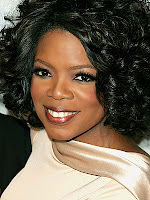Status of Black American Attitudes -- Part 1
A recent Pew Research Center study, a non-partisan think tank (link), in 2007, confirms what has been suspected for quite awhile, maybe even known, that black Americans see disparities among its own race as culturally varied within the United States. This study, done prior to the election of President Obama, solidifies the cultural underpinnings of how progress (or decline thereof) has been seen.
In addition, attitudes among black Americans, according to the study, view progress in race relations, in terms of their own values, identity, class stratification, and their prospects for future generations as "widening." Moreover these attitudes have been trending on a downward slope for quite awhile, as black Americans see disparity as culturally and generationally different. For instance, shortly after the passage of the Civil Rights Act of 1964, 70 percent of blacks and 68 percent of whites felt that blacks had made progress or were "better off." A mere 19 years later (1983), however, that number among black Americans dropped to 20 percent, and bounced up and down for the next 24 years swinging dramatically from 37 to 20 percent in 2007. Optimism among black Americans drops severely just prior to the economic crash of 2008.
What's more, for whites, non-Hispanics, those numbers reflectively are 68 percent, roughly stayed at 55 percent nineteen years later (1983), but then declines steadily for the next 24 years, with marginal up ticks, but eventuates downward to 37 percent in 2007. So, even the data among white-Americans acknowledge that there is an erosion of "progress" for black Americans.
The study also revealed black Americans attitudes toward its role models, leadership, and the feeling of its representation. While many in the media may believe that there much contention of outspokenness of those perceived as positive role models, such as Bill Cosby, Oprah Winfrey, and Barack Obama, this does not appear to be the case. Bill Cosby 85, Oprah Winfrey 87, and Barack Obama 76 percent are seen as a "good influence," while their negatives are 1, 2, and 3 percent respectively.
On the other hand, those who are often seen as the "spokespersons" of black Americans, such as Jesse Jackson, Al Sharpton, and Russell Simmons all had less than 70 percent in the category of "good influence," while their negatives were 5, 6, and 3 percent. In other words, although Jesse Jackson, Al Sharpton, and Russell Simmons may believe they speak for the whole of black Americans, nearly 21, 19, and 15 percent respectively see them as "not much influence" at all. Therefore, three black American politicos negatives representing an average of 18.1 percent should indicate to main stream media conglomerates that nearly 1 in 5 black Americans find Jesse Jackson, Al Sharpton, and Russell Simmons untenable as representatives.
Furthermore, popular culture received items such as "Rap" are supposed stereotypical representations of blacks writ-large, but seen within the black community as primarily negative concurring with white-Americans views. The support of rap artists, such as Kanye West and 50-cent, at 49 and 17 percent are seen as being a "good influence," while 31 and 68 percent, again respectively, represent their influence as either "bad" (Kanye West at 8, 50-cent at 42 percent), or "not much influence" (Kanye West at 23 percent, 50-cent at 26 percent). Leaving one to contend that black Americans truly are stewards of rationality and common sense, instead of emotionally radical (belligerent) portrayals that are often associated with these artists.
Additionally, over the past decade the images of black Americans from the standpoint of movies and television and the messaging that comes from these mediums impact most American views has been overall positive from Hispanics and whites. According to Pew survey, however, black Americans still see their own racial identity within television and movies as "harmful." Hispanics at 54, whites 57, and plurality of blacks at 43 percent views media of black Americans over the prior ten years to 2007 as better, while the media effects on society are seen by the corresponding groups for Hispanics and blacks at 31, and whites at 25 percent as helpful. Yet as a plurality these corresponding groups view images of black Americans on television and movie as either having "no effect" or "hurtful" for blacks at 61, Hispanics at 56, and whites at 64 percent.
What is interesting, the views of black Americans and whites over the preceding decade have been corresponding similar and narrowing in terms of values. In part two, a review of the 2007 Pew study reveals the complexities of black Americans racial identity, socioeconomic factors, political leadership, and disparity within are examined from a longitudinal perspective.
End Part 1
In addition, attitudes among black Americans, according to the study, view progress in race relations, in terms of their own values, identity, class stratification, and their prospects for future generations as "widening." Moreover these attitudes have been trending on a downward slope for quite awhile, as black Americans see disparity as culturally and generationally different. For instance, shortly after the passage of the Civil Rights Act of 1964, 70 percent of blacks and 68 percent of whites felt that blacks had made progress or were "better off." A mere 19 years later (1983), however, that number among black Americans dropped to 20 percent, and bounced up and down for the next 24 years swinging dramatically from 37 to 20 percent in 2007. Optimism among black Americans drops severely just prior to the economic crash of 2008.
What's more, for whites, non-Hispanics, those numbers reflectively are 68 percent, roughly stayed at 55 percent nineteen years later (1983), but then declines steadily for the next 24 years, with marginal up ticks, but eventuates downward to 37 percent in 2007. So, even the data among white-Americans acknowledge that there is an erosion of "progress" for black Americans.
 |
| Image from People Magazine |
 |
| Image from Wikipedia |
 |
| Image from White House.gov |
Furthermore, popular culture received items such as "Rap" are supposed stereotypical representations of blacks writ-large, but seen within the black community as primarily negative concurring with white-Americans views. The support of rap artists, such as Kanye West and 50-cent, at 49 and 17 percent are seen as being a "good influence," while 31 and 68 percent, again respectively, represent their influence as either "bad" (Kanye West at 8, 50-cent at 42 percent), or "not much influence" (Kanye West at 23 percent, 50-cent at 26 percent). Leaving one to contend that black Americans truly are stewards of rationality and common sense, instead of emotionally radical (belligerent) portrayals that are often associated with these artists.
Additionally, over the past decade the images of black Americans from the standpoint of movies and television and the messaging that comes from these mediums impact most American views has been overall positive from Hispanics and whites. According to Pew survey, however, black Americans still see their own racial identity within television and movies as "harmful." Hispanics at 54, whites 57, and plurality of blacks at 43 percent views media of black Americans over the prior ten years to 2007 as better, while the media effects on society are seen by the corresponding groups for Hispanics and blacks at 31, and whites at 25 percent as helpful. Yet as a plurality these corresponding groups view images of black Americans on television and movie as either having "no effect" or "hurtful" for blacks at 61, Hispanics at 56, and whites at 64 percent.
What is interesting, the views of black Americans and whites over the preceding decade have been corresponding similar and narrowing in terms of values. In part two, a review of the 2007 Pew study reveals the complexities of black Americans racial identity, socioeconomic factors, political leadership, and disparity within are examined from a longitudinal perspective.
End Part 1

Comments